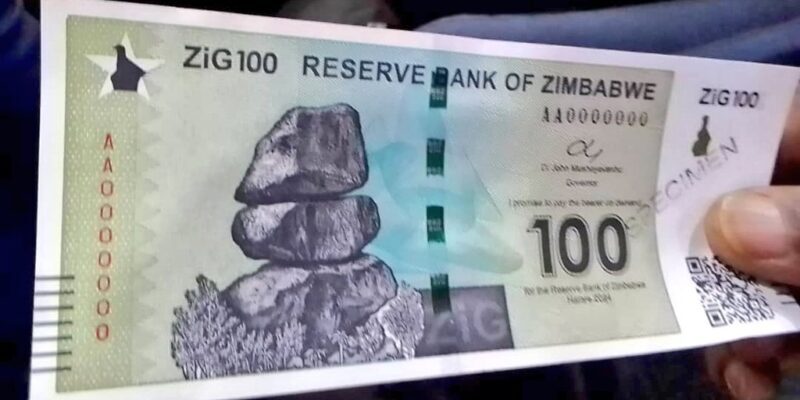Reserve Bank of Zimbabwe Introduces Gold-Backed Currency ZiG
The Reserve Bank of Zimbabwe has launched ZiG, a new gold-backed currency aimed at stabilizing the economy and shielding citizens from currency fluctuations and soaring inflation. ZiG, short for “Zimbabwe Gold,” was unveiled by Central Bank Governor John Mushayavanhu on Friday last week.
The move comes amidst the drastic depreciation of the Zimbabwean dollar, or RTGS, which has lost three-quarters of its value this year.
Mushayavanhu emphasized that the goal is to replace the RTGS with the gold-backed ZiG currency. Citizens have been given a 21-day window to exchange their old cash for the new currency, while the US dollar, which constitutes 85% of transactions, will remain legal tender during this transition period.
The new ZiG banknotes will be issued in denominations of 1, 2, 5, 10, 50, 100, and 200, with coins backed by Zimbabwe’s gold reserves also being introduced to address the scarcity of US coins. Currently, consumers often receive unconventional forms of change, such as sweets, small chocolates, or pens.
The introduction of the gold-backed currency aims to restore stability to the currency market by leveraging Zimbabwe’s significant gold reserves to inspire confidence in the new monetary system.
Gold deposits have long played a vital role in the country’s economy, accounting for nearly 25% of total exports in January 2024, according to official data.
However, some experts have raised concerns about whether Zimbabwe’s reserves are sufficient to adequately back the currency and whether it could be vulnerable to fluctuations in gold prices.
Economist Prosper Chitambara noted that neighboring countries like South Africa possess much larger reserves, suggesting that greater reserves instill more confidence and enhance a currency’s ability to withstand shocks.
195 total views , 1 views today





